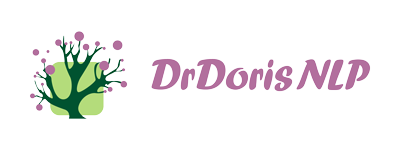The Reluctance to Embrace Self-Development: Overcoming Excuses and Empowering Change

Recently I was on a Zoom consultation with a client who I have been in contact with for 3 years. I never give up on people because they have been individuals in my life that didn’t give up on me, once again we spoke of the client reaching their outcomes, and how I didn’t sugarcoat it. I said, “it’s been three years and you’re still making the same excuses you made 3 years ago during our first consultation.” Excuses period. I don’t have the money; yet they can afford to dine out, and buy expensive clothing based on what she was wearing at the Zoom session. I simply said you don’t want to or refuse after 3 years to look at yourself in the mirror confront your demons and put in the work to get better every day.
We have all seen individuals in life consciously fail and refuse to say the truth and look them in the face and be straight up honest and speak. “Look I love you, but you got to be better, and stop being mediocre.” We all love that person that makes us feel happy and secure and says it’s okay things will get better. Relax and keep reading your affirmations, without ever taking action. You care about this person but refuse to make them accountable, this is to me a pity and an insincere friendship, family relation or employer to employee communication. Accepting their victim mentality and not being truthful enough to tell them to confront them, and their not a victim, and pick themselves up and do the work and upscale themselves.
In a world where personal and professional growth are often the keys to success, it’s surprising how many people find excuses to avoid training and courses aimed at self-development. This hesitation to embrace opportunities for improvement is not uncommon, but it raises an important question: Why do so many people shy away from taking steps that could enhance their lives and careers? Exploring this reluctance, and how tools like Neuro-Linguistic Programming (NLP), Emotional Intelligence (EI), and Corporate Trainer certifications with international recognition can empower individuals, is essential to understanding and overcoming the barriers that hold people back.
The Psychology Behind Avoiding Self-Development
People’s reasons for avoiding self-development can be varied and complex, but they often boil down to a few common themes:
- Fear of Failure: Many individuals fear that they won’t succeed in their efforts to improve. This fear can stem from past experiences of failure, leading to a belief that new attempts will end in the same way. The idea of investing time, money, and energy into a course or training, only to fail, can be daunting.
- Comfort Zones: Change requires stepping out of one’s comfort zone, which can be unsettling. The familiar, even if not ideal, provides a sense of security. People may avoid self-development because it threatens their routine, pushing them into uncharted territory.
- Lack of Self-Belief: A significant number of people doubt their abilities. This lack of self-belief is a critical barrier to self-development. If individuals don’t believe they have the potential to grow, they’re unlikely to pursue opportunities for improvement.
- Procrastination: The habit of putting things off is a common excuse. People tell themselves they will sign up for that course “someday,” which often translates to never. This procrastination can be rooted in fear or simply the inertia of everyday life.
- Perceived Irrelevance: Some may not see the immediate relevance of personal development to their lives. They might not understand how enhancing skills like communication or emotional intelligence can impact their personal or professional success.
Empowering Change Through NLP, EI, and Corporate Training
Confronting these barriers requires a shift in mindset, and this is where techniques like Neuro-Linguistic Programming (NLP), Emotional Intelligence (EI), and Corporate Trainer certifications come into play. These methods not only provide tools for self-improvement but also empower individuals to challenge their fears and beliefs.
Neuro-Linguistic Programming (NLP)
NLP is a psychological approach that involves analyzing strategies used by successful individuals and applying them to reach personal goals. It focuses on the connection between neurological processes, language, and behavioral patterns learned through experience. By using NLP, individuals can reframe their thoughts and behaviors, transforming limiting beliefs into empowering ones.
For example, someone who fears failure might use NLP techniques to reframe their perception of failure, viewing it instead as a learning opportunity. This shift in mindset can reduce fear and increase the willingness to take risks. NLP provides tools for individuals to rewire their thinking, enabling them to break free from the excuses that hold them back.
Emotional Intelligence (EI)
Emotional Intelligence refers to the ability to recognize, understand, and manage one’s own emotions and the emotions of others. Developing EI can help individuals cope with fear, anxiety, and other emotions that lead to avoidance behaviors.
By improving EI, people can better manage stress and emotional reactions, making them more resilient in the face of challenges. This resilience is crucial in overcoming the fear of failure and stepping out of comfort zones. Higher EI leads to better self-awareness and self-regulation, enabling individuals to tackle procrastination and inertia with greater efficacy.
Corporate Trainer Training and International Certifications
Becoming a certified corporate trainer with internationally recognized credentials provides a structured pathway for personal and professional development. This kind of training equips individuals with the skills to facilitate growth in others, which in turn fosters self-improvement.
The process of becoming a certified trainer involves mastering content, developing communication skills, and learning to manage diverse groups. This process can be transformative, as it forces individuals to confront their own fears and insecurities. The international certification adds credibility and recognition, which can boost self-confidence and open doors to new opportunities.
Turning Inactivity into a Force for Positive Change
By leveraging NLP, EI, and corporate trainer certifications, individuals can transform their lives. These tools provide the framework to:
- Challenge Limiting Beliefs: By understanding and reprogramming thought patterns, individuals can overcome self-doubt and fear of failure.
- Enhance Emotional Resilience: Improved emotional intelligence allows for better management of stress and fear, leading to proactive rather than reactive behavior.
- Develop Action-Oriented Mindsets: Training programs and certifications instill a sense of purpose and direction, reducing procrastination and encouraging goal-oriented action.
Ultimately, the journey of self-development is about turning excuses into empowerment. It’s about recognizing that the reasons we avoid change are often the very reasons we need it the most. Through dedication and the right tools, anyone can overcome the barriers of fear, self-doubt, and procrastination, transforming potential into reality. These tools not only help individuals survive but thrive, turning the forces of inactivity into momentum for positive change.
If your ready to confront your fears and finally start living your best life, not caring what others think, but fulfilling your purpose, so when you do leave there are no regrets, contact Dr. DorisNLP and Conscious Solutions certifications for a free consultation.
WhatsApp/BOTIM/Telegram +91-9769-277975/+91-90493-19471
info@drdorisnlp.com
Dr. DorisNLP “Where People are the Heart of the Matter.”




